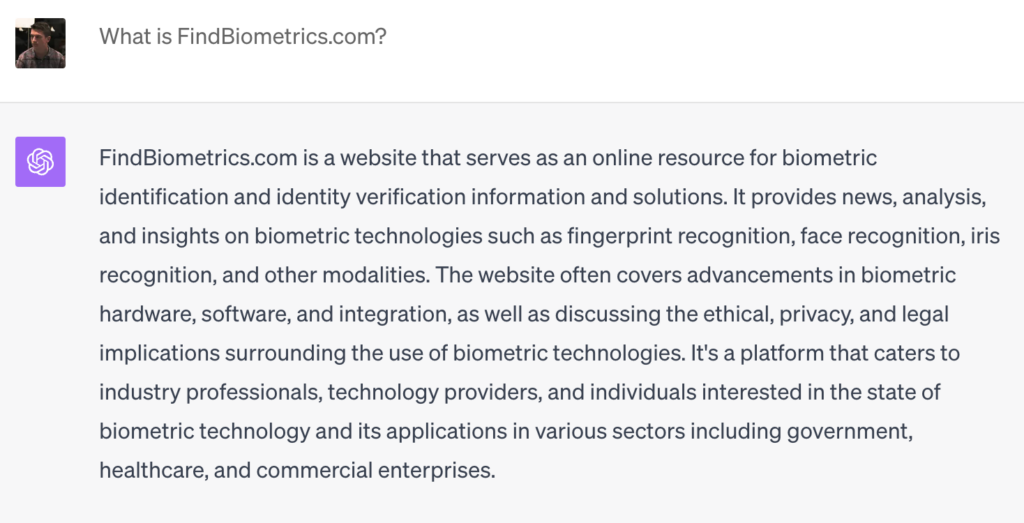Welcome to the latest edition of FindBiometrics’ AI update. Here’s the latest big news on the shifting landscape of AI and identity technology:

Ahead of parliamentary elections in Slovakia, AI-generated deepfakes of politicians’ voices have begun to circulate on social media platforms including Facebook and Instagram. One clip that sounded like a recording of a party leader discussing buying votes was analyzed by experts hired by the Associated Foreign Press, who concluded that it was generated by an AI tool trained on samples of the speaker’s voice.
Palantir Technologies has secured a $250 million contract to “conduct research and develop services” in artificial intelligence. Few further details of the deal have been made available, though Palantir has been performing AI-related work for the Army Research Lab since 2018. It’s the latest sign of the military’s investment in AI tech, after IARPA gave a $12 million grant to Michigan State University for long-range biometric recognition research earlier this month.
Government officials in the United Kingdom are negotiating with OpenAI, Antrhopic, Google DeepMind, and other AI companies to gain sensitive information about their AI models. The push comes ahead of a planned AI safety summit scheduled for November. A source close to government told the FT that the firms “are not being obstructive” in the negotiations, but that access is “generally a tricky issue”.
The Department of Justice is planning to issue a department-wide policy concerning the protection of privacy and civil rights in federal law enforcement’s use of facial recognition technology, according to a report from the Government Accountability Office. The GAO found that the Federal Bureau of Investigation has been using both in-house facial recognition technology and that provided by the private company Clearview AI.
The European Commission has been informally investigating potential anticompetitive practices on the part of Nvidia, the major AI chip maker, and France’s antitrust regulator raided the company’s offices this week. But investigators are being tight-lipped about what their exact concerns may be. In June, the French antitrust body published a report noting that there is increasing demand for cloud services relating to AI, and said that established player must be prevented from hindering the growth of smaller ones.
Amazon has agreed to invest up to $4 billion in OpenAI rival Anthropic. The agreement starts with an initial, $1.25 billion minority stake. In return, Anthropic will use Amazon as its primary cloud computing provider. Amazon wants to leverage the deal to get more of a market footing for its Trainium and Inferentia chips.
Character.AI is in talks to raise hundreds of millions in funding to bring its valuation above $5 billion. The startup specializes in the creation of AI-powered chatbots meant to mimic notable fictional characters and even real-world celebrities.
ID R&D has outperformed the competition in the National Institute of Standards and Technology’s first evaluation program of passive facial presentation attack detection algorithms. The evaluation program saw the participation of 82 algorithms from 45 developers, with ID R&D getting more top rankings than any other developer across various metrics in a branch of the testing program focused on impersonation.
Google’s upcoming Pixel 8 and Pixel 8 Pro smartphones appear to have a novel photo editing feature that will let the user swap in a better photo of a subject’s face. It works via facial recognition, matching the person in the photo to other images in the user’s camera reel. If the subject in the shot is blinking or turning their face at an awkward angle, Google’s AI system will automatically suggest a different angle of the same person’s face, taken from a different image.
The chatbot’s take: Web search functionality returned to ChatGPT this week, so we took the opportunity to engage in a bit of self-reflection.

–
September 29, 2023 – by Alex Perala








Follow Us